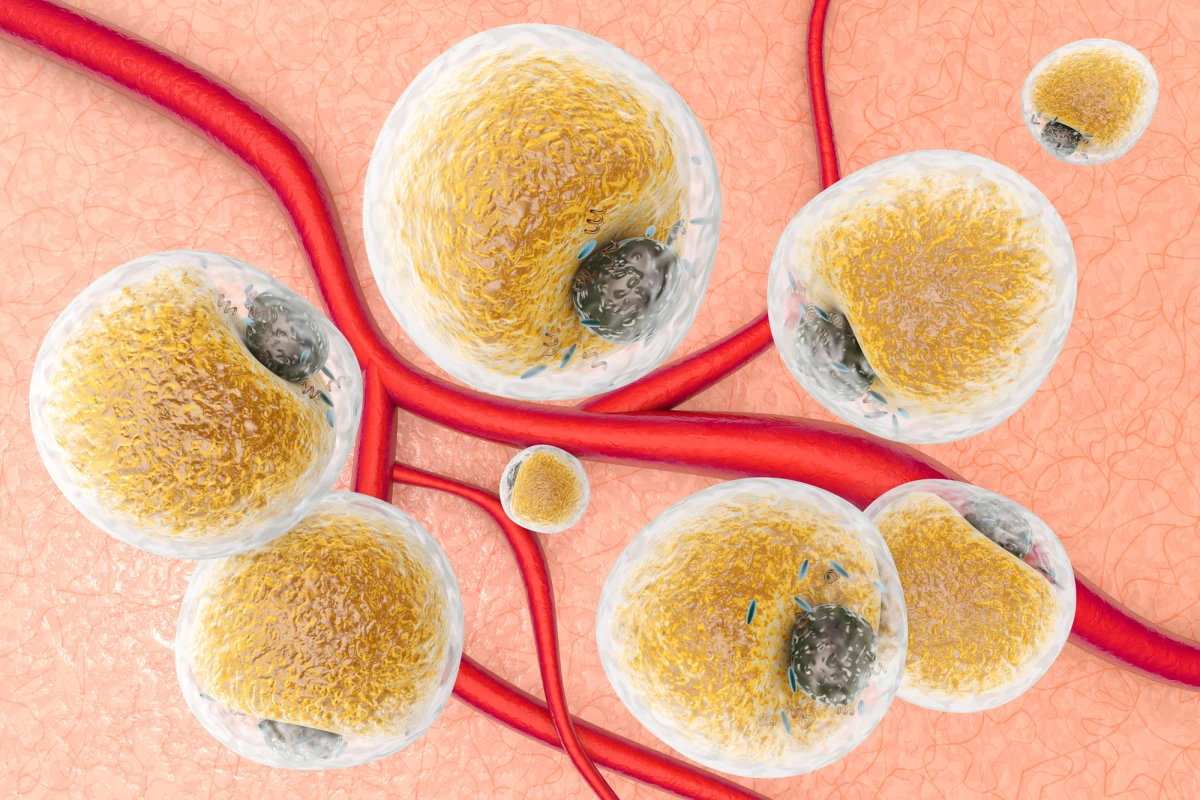Over the past decade or so, research has shone a light on the different types of fat in the human body, and shown us how some are more desirable than others when it comes to keeping in shape. A new study has revealed a novel signaling pathway through which bad fats are converted into healthier forms, opening up a new possibilities around weight loss and the improvement of metabolic health.
The type of fat that we are most familiar with is known as white fat, which are the cells our body uses to store excess energy, and the cells that give rise to double chins and beer bellies. Brown fat is found in large amounts in babies, and these cells contain higher amount of mitochondria that burn glucose to generate body heat, a process known as thermogenesis.
It was always thought that this type of brown fat was only common in newborns, but in 2009 scientists made a significant discovery, that it is indeed still present in adults, albeit in small amounts. This kickstarted a new field of research centered on the notion that white fat could potentially be coaxed into transforming into the healthier brown form to burn calories though thermogenesis, as a way of tackling obesity and metabolic disorders.
The latest breakthrough in this area comes from scientists at the University of California, San Diego and focuses on a type of stored sugar called glycogen. This is unneeded glucose that is stored mostly in the liver and skeletal muscle cells, with the body able to swiftly draw on this source of energy when in need, or to keep blood sugar to healthy levels.
What is not so well understood is the role glycogen plays in fat cells. Using overweight mice as a model, the authors of this new study were able to study its behavior and found that it does a whole lot more than just store energy within fat cells. It also plays a surprisingly significant role in how energy expenditure and heat production play out in obesity.
The team's observations revealed that the "browning" of fat cells was directly linked to how well they could both make and degrade glycogen. When glycogen is turned over in this way, it produces a signal that it is safe for the fat cell to "uncouple" the production of a molecule called ATP that provides energy for most cellular processes.
“Uncoupling is a way to generate heat, and in the process help balance energy," says senior author Alan Saltiel. "This pathway thus ensures that only the fat cells with enough energy stores to fuel the generation of heat are allowed to do so."
According to the team, the higher the levels of glycogen in the obese mice, the more effective the metabolic processes, which equated to faster fat burning and weight loss. Turning their attention to humans, the team found that genes involved in this process were indeed lower in patients that were obese or susceptible to weight gain.
The scientists therefore conclude that the glycogen pathway is critical for fat cells to burn away excess calories, and acts as a key link between glucose metabolism and thermogenesis. This raises the prospect of developing therapies that modulate glycogen metabolism in fat cells as a way of promoting weight loss and improving metabolic health.
The research was published in the journal Nature.




